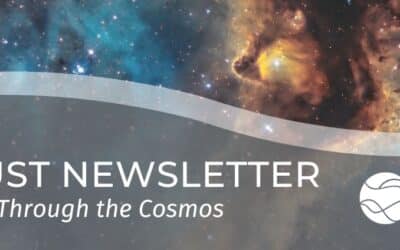Here in the North, we are entering late fall. The hard frosts have come again. The leaves on the garden plants have shriveled and blackened. The tree leaves carpet the ground, their vibrant colors fading away, and the earthy scent of decay fills the air. Where do reds, yellows, and orange go? It is a cycle that I know well, reminding me that I am home.
Halloween and Día de Muertos have now passed. Recently, I learned that Americans spend about 10 billion dollars a year on Halloween. In light of so many pressing needs (hunger, housing, etc.) I was at first taken aback. On reflection, it made sense. So much of the human experience is built on avoiding death, trying to avoid the reality of impermanence, and living in the mystery of life; why not take a break from this constructed worry and fear for one day of the year and play with costumes and imagination?
And to step into and experience the reality and joy of life. To step into the waters of the mystery and the unknown, if even with a little toe, through an exploration of death, goblins, ghosts, skeletons, the mysterious and the unknown. Or to step out of one’s constructed self and play superhero or princess, just for one day, before returning for the rest of the year into an automaton, somnambulant culture, until Halloween rolls around again. Same as it ever was. I paint a stark picture, but at the core, the question remains: what brings us joy, how do we flourish and feel a sense of aliveness? Flourishing is an active process, so much different and richer than “health.”
In this context, I really enjoyed the essay “What Psychedelics Can Teach Us about Play” by sociologist, psychotherapist, and author Ross Ellenhorn Ph.D. As he said, psychedelics,
“…offer access to deep secular magic: a conjuring of life in one’s being and in others, an alertness to the strange and beautiful novelty of the world around us, an experiencing of one’s connection to this world, and the ability to take what seems solid within us and mold it like clay.”
I imagine this as reconnection to our inner healer, our purpose, and to the aliveness within us, a coherence with a life force.
Similarly, this August, at the conclusion of our inaugural End of Life Training, I was struck by how the experience felt essential for any human. It was beautiful and as we learned from our participants, life changing. Yes, we designed the program for those working in palliative care and hospice. Yet the power of psychedelics to help anyone “die before dying” was demonstrably liberating reinforcing the literature on how these medicines can change attitudes about death and dying. Or as Episcopal priest Hunt Priest explained to Lucid News about his experience with psilocybin in the Johns Hopkins study with religious leaders:
“I felt a force of energy blow into my body,” he recalled. “Now I see that spiritual healing is real. I’d laid hands on people and prayed with people, but frankly, I was just touching and holding space. Now I know healing is real. It’s a little embarrassing to admit it, but I was in my head all the time. This was in my body.“
One can feel the sense of wholeness and aliveness in his description. It is a felt sense of experience.
The question of what it means to flourish and thrive and to be fully alive as a human on this planet is foundational. Within healthcare and across occupational sectors we are witnessing an epidemic of burnout. A 2021 study of ten thousand 16 to 25 year olds across ten countries found that (59%) were very or extremely worried about climate change. When our hearts are no longer singing or we can no longer hear the tune, it should be no surprise that we are experiencing an epidemic of burnout. In Phil Shepherd’s beautiful book Radical Wholeness he shares how,
“Our bodies hum to the Present Moment, and as we become aware of that humming, we feel the Present living within us. When we are embodied in this way, all sense of separation fades, and the embodied present moment is the lived divine experience.”
Radical Wholeness can be appreciated as a felt sense of the aliveness of the universe, so much more than our thoughts and what is in our minds.
The beauty of psychedelics is that they are powerful teachers that help us experience and feel with our entire being worlds beyond ourselves. This experience and knowing is in stark contrast with the cultural systems that we humans have created. Importantly, in the context of climate change and species extinction, we should be humbled and reminded of the hubris of human exceptionalism.
What feels exciting is the incredible work of individuals and organizations across this planet to reimagine and sense into a different way of being. PRATI’s vision of a world in which all humans flourish and thrive in right relationship with the natural world is but one example.
I am excited by the work around plant intelligence and plant consciousness. Books like Paco Calvo’s Planta Sapiens are helping illustrate the intelligence of plants (and creating controversy with the scientific world that feels threatened by the idea of other intelligences). Robin Wall Kimmerer’s Braiding Sweetgrass helps illustrate how the noun-based English language culture limits our ability to even imagine the aliveness of a living world. Within PRATI, we have been piloting a series of practices to explore and sense into the aliveness of the more-than-human world. As one of our alumni in our practice group shared, “I now see trees in a completely different way.” It is hard to imagine working with plant medicines without this humility and reciprocity.
This summer, I had the joy of reading the book The Well-Lived Life by Gladys MacGarey M.D. Dr. MacGarey is a 102-year-old physician and has been described as the “Mother of Holistic Medicine.” In her book, she shares simple lessons that she has learned throughout her lifetime as a physician. One such reminder is this:
“Every individual is part of a greater whole. Just as all the cells in our body work together to sustain life, all living things work together to create the universe we live in. Each of us is therefore both unique and essential.”
Let us take heed. Psychedelic medicines are not simply drugs or tools, they are alive as helpers and teachers. If we are to flourish and thrive as a species, let us work to remind ourselves that we are one part of the community of life working together to create the universe we all live in.
Thank you for your love, your donations, and your support.




